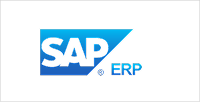
Trusted by Leading CPA Firms for Outsourced Accounting Services
Enhance your accounting firm’s capacity and efficiency with our expert outsourced accounting services tailored for CPA firms. Backed by 15+ years of experience, a 97% CSAT score, and an 85 NPS, we empower over 300 CPA firms across the U.S. Our proven accounting outsourcing solutions help firms to enhance client value and improve operational efficiency.







How Our Accounting Outsourcing Expertise Drives Firm Efficiency
Overwhelmed by the Growing Need for Client Accounting Services?
Facing growing demands in client accounting can stretch your CPA firm thin, leading to missed opportunities and strained resources. Partnering with an experience outsourced accounting firm can cut operational costs and elevate service standards, without the burden of increased overheads. This strategic approach helps your firm stay flexible to client needs, deliver consistently, and build stronger relationships, all while driving sustainable growth.
Identifying the Need for CAS in Your Practice
We pinpoint gaps by evaluating your clients’ need for more in-depth financial insights, identifying how Client Accounting Services (CAS) can enhance the value you provide.
Analyzing Current Processes
We analyze your firm’s current service offerings and operational workflows to identify areas for improvement and determine how CAS can address inefficiencies.
The Benefits of a Tailored CAS Approach
We offer tailored CAS solutions that adapt to your clients’ specific needs, ensuring flexibility and boosting client satisfaction as your firm grows.
Address Staff Shortages, Optimize Operations, and Expand Your Firm with Our Expert Accounts Outsourcing Services.
Book a Free Consultation
How QXAS’ Outsourced Accounting Services Streamline Delivery and Compliance
We streamline every step for seamless integration from start to finish. Our process ensures you experience the best outsourced accounting services with minimal disruption and maximum efficiency.
Scope of Work
- Complex accounting jobs
- Financial review & management reporting
- Industry-specific accounting software skills
- Report compilation
- Generating paychecks
- Payroll return filing
- Sales tax working & return filing
- Other accounting-related jobs
What We’ll Need
- Source Documents
- Current year documents and files (Bank Statements, CC Statements, Etc)
- Project Checklist
- Online/Offline Software Access
- Budgeted Hours (If already estimated)
- Special Instructions (If Any)
What You’ll Get
- Excel working papers with indices, hyperlinks, lead schedules, and control accounts
- Full set of accounts
- Abbreviated accounts
- Software backup
Success Stories – Outsourced Accounting for CPA Firms
Hear what our clients have to say about us!
Cristopher Carmona, CPA, speaks about his bookkeeping outsourcing experience with QXAS. He emphasizes how efficiently the team set up everything remotely and executed all functions, without any hiccups.
Rely on the Confidence of Over 300 CPA Firms to Reduce Operational Costs by Up to 50%, Increase Profits, and Foster Sustainable Growth.
Book a Free ConsultationExperience the QXAS Difference in Accounting Outsourcing
Experience top-tier efficiency, precision, and security, custom-designed to elevate your firm’s accounting operations.

Market Leaders in Outsourcing

Managed FTE Solutions

Four-eyed Review Process

Top-notch Talent

100% Data Security Assured

Seamless Integration

Enhanced Reporting & Governance

Consistently high CSAT Scores (>97%)
Software Capabilities
Your software, our expertise—the QX team of expert accountants are trained to use the tools you trust, ensuring a seamless and efficient process.









FAQs
Got questions? Resolve any doubts about outsourcing and learn how QX’s strategic expertise can transform your practice.
We offer outsourced accounting services for small businesses as well as medium and large-sized accounting firms. Accordingly, we offer two primary engagement models: the Pay-As-You-Go and the Dedicated Resource or Full-Time Equivalent (FTE) model. Your accounting firm can choose the outsourced accounting services model best suits your needs.
Accounting process outsourcing is divided into five primary phases that start with project evaluation and end with transformation. We begin by getting a clear idea of the volume of work and a better understanding of your accounting firm and its internal processes. This will allow us to identify the right people, processes, and platforms to handle your requirement. It then proceeds to project execution and the transition process.
QX Accounting Services adopts a ‘Security First’ Approach across its account outsourcing processes. We are SOC 2 Type 2 Compliant, GDPR Compliant, and also ISO 27001 certified for security. Your financial data is in safe hands with us, and we ensure that it doesn’t pass into the wrong hands.
With the QXAS Tracker App, you can monitor the progress of your accounting tasks in real-time. If you are looking for outsourced accounting services, we are one of the best providers because all you need is a mobile phone – download this app onto it, and you are ready to keep up with all your outsourced accounting tasks.
You are the best judge of whether this is the right decision for you, but we say it is. Outsourced accounting services bring a lot of cost efficiencies to the table, will improve business profitability, and free up a lot of time invested in other revenue-generating activities.
Outsourcing your accounting is a strategic move for CPAs and accounting firms seeking efficiency and growth. Here’s why:
- Cost Reduction: Outsourcing converts fixed costs into variable costs, offering significant savings on overheads.
- Access to Expertise: You gain access to a pool of professionals with diverse expertise and experience, ensuring high-quality accounting work.
- Focus on Core Business: By outsourcing, CPAs can devote more time and resources to core business activities like client management and strategic planning.
- Scalability: Outsourcing offers the flexibility to scale services up or down based on demand without the need for additional hires.
- Technological Edge: Outsourcing firms often use advanced accounting software and tools, providing you with cutting-edge solutions without the hefty investment.
- Risk Management: With specialists handling your accounting, compliance and regulatory risks are significantly reduced.
To outsource your accounting means to embrace efficiency, expertise, and strategic growth opportunities.
Absolutely, reputable firms offering to outsource your accounting services typically have a portfolio of client references. These references are from various CPAs and accounting firms that have successfully outsourced their accounting functions. These testimonials often highlight the efficiency gains, cost savings, and enhanced financial reporting quality experienced by these clients.
When considering partnering with accounting outsourcing firms, it’s advisable to request such references. This enables you to gauge the service provider’s expertise, reliability, and the kind of results you can expect. Moreover, speaking directly with these references can provide insights into the provider’s communication, problem-solving capabilities, and their ability to adapt to different accounting needs.
Remember, trustworthy accounting outsourcing firms will be transparent and eager to share client success stories, giving you confidence in their ability to handle your accounting needs effectively.
Deciding to outsource accounting can be pivotal for CPAs and accounting firms. Here’s why it’s worth considering:
- Focus on Core Business: Outsourcing routine accounting tasks allows firms to concentrate on core business areas, enhancing overall strategy and client engagement.
- Cost Savings: It’s often more cost-effective to outsource than to maintain an in-house team, especially for smaller firms or during off-peak seasons.
- Access to Expertise: Outsourcing provides access to a broader pool of specialized expertise, which might not be feasible to have in-house.
- Scalability and Flexibility: Outsourcing offers the flexibility to scale services up or down based on demand, a significant advantage during fluctuating workloads.
- Risk Reduction: With outsourced experts, the risk of errors is reduced, ensuring compliance and accuracy in accounting practices.
Ultimately, whether to outsource accounting depends on the firm’s specific needs, but the potential benefits make it a strategy worth considering for efficiency, growth, and competitive advantage.
Accounting outsourcing at QX operates through a streamlined, client-centric approach specifically tailored for CPAs and accounting firms.
Initially, QX collaborates with clients to understand their specific needs and workflows. This phase ensures that the outsourcing aligns seamlessly with the firm’s existing processes.
Following this, a dedicated team of accounting professionals, adept in the latest accounting standards and technologies, is assigned to each client.
The team at QX Accounting Services then takes over various accounting tasks, ranging from routine bookkeeping to complex tax preparation and financial analysis. They utilize advanced accounting software and maintain consistent communication with the client to ensure accuracy and transparency. Regular reports and insights are provided, enabling firms to make informed decisions.
Accounting outsourcing at QX is a blend of personalized service, professional expertise, and technological proficiency aimed at enhancing efficiency and scalability for CPAs and accounting firms.
When considering outsourced accounting services, the cost factor is as diverse as the services offered. It’s not a one-size-fits-all scenario; instead, the price depends on the specific needs of your firm. Factors influencing cost include the scope of services (like basic bookkeeping, comprehensive financial management, or strategic financial planning), the size of your firm, and the complexity of your financial transactions.
For CPAs and accounting firms, it’s crucial to weigh the costs against the benefits. Outsourcing can streamline operations, introduce advanced technology, and offer access to specialized expertise, which might not be feasible in-house. The real value lies in how these services can free up your firm’s resources, allowing a sharper focus on client relationships and strategic growth. Ultimately, the investment in outsourced accounting services is about enhancing efficiency, accuracy, and the strategic capabilities of your firm.
At QX, we are fully prepared to meet the accounting outsourcing needs of your CPA firm. Tailored specifically for CPAs and accounting firms, our services encompass a wide range of solutions, from meticulous bookkeeping to comprehensive tax preparation, payroll processing, and audit support. Our team of skilled professionals is dedicated to providing top-tier accounting outsourcing services, ensuring that every task is executed with the highest level of precision and efficiency.
Understanding the unique demands of the accounting industry, we at QX leverage advanced technology and proven methodologies to deliver results that not only meet but exceed your expectations. We pride ourselves on our ability to adapt our services to the specific requirements of your firm, offering personalized support that aligns seamlessly with your business objectives.
QX is your go-to partner for reliable, efficient, and high-quality accounting outsourcing services, committed to enhancing the operational effectiveness of CPAs and accounting firms.
Check the provider’s experience, credibility, data security protocols, service range and client reviews. Also, ensure they understand your industry and can scale with your firm’s growth.
An outsourced accounting firm gives you access to skilled professionals, advanced tools, and flexible support, without the overhead of hiring, training, or managing staff.
While traditional accounting practices often focus on specific aspects of financial management such as tax filing and financial statement preparation, CAS provides a more integrated approach. CAS encompasses a broader range of services aimed at managing a company’s entire financial department. This approach not only supports compliance with regulatory requirements but also aids in strategic decision-making by providing comprehensive insights into the financial health of the business.
To ensure a successful rollout of CAS services, start by clearly defining the scope and goals of the services you intend to offer. Communicate these objectives effectively with both your team and your clients to set clear expectations. Invest in training your staff to handle the diverse needs of CAS clients and consider leveraging technology to streamline processes and increase efficiency. Regularly gather feedback from clients and adjust your services as needed to better meet their needs. By carefully planning and managing the implementation, you can enhance client satisfaction and maximize the benefits of your CAS offerings.
Our Latest Insights
Let’s Work Together
Explore outsourcing solutions, request a free trial or discuss your practice’s needs with our expert consultants.




 Book a Virtual Meeting
Book a Virtual Meeting  Get Your ROI Estimate
Get Your ROI Estimate 